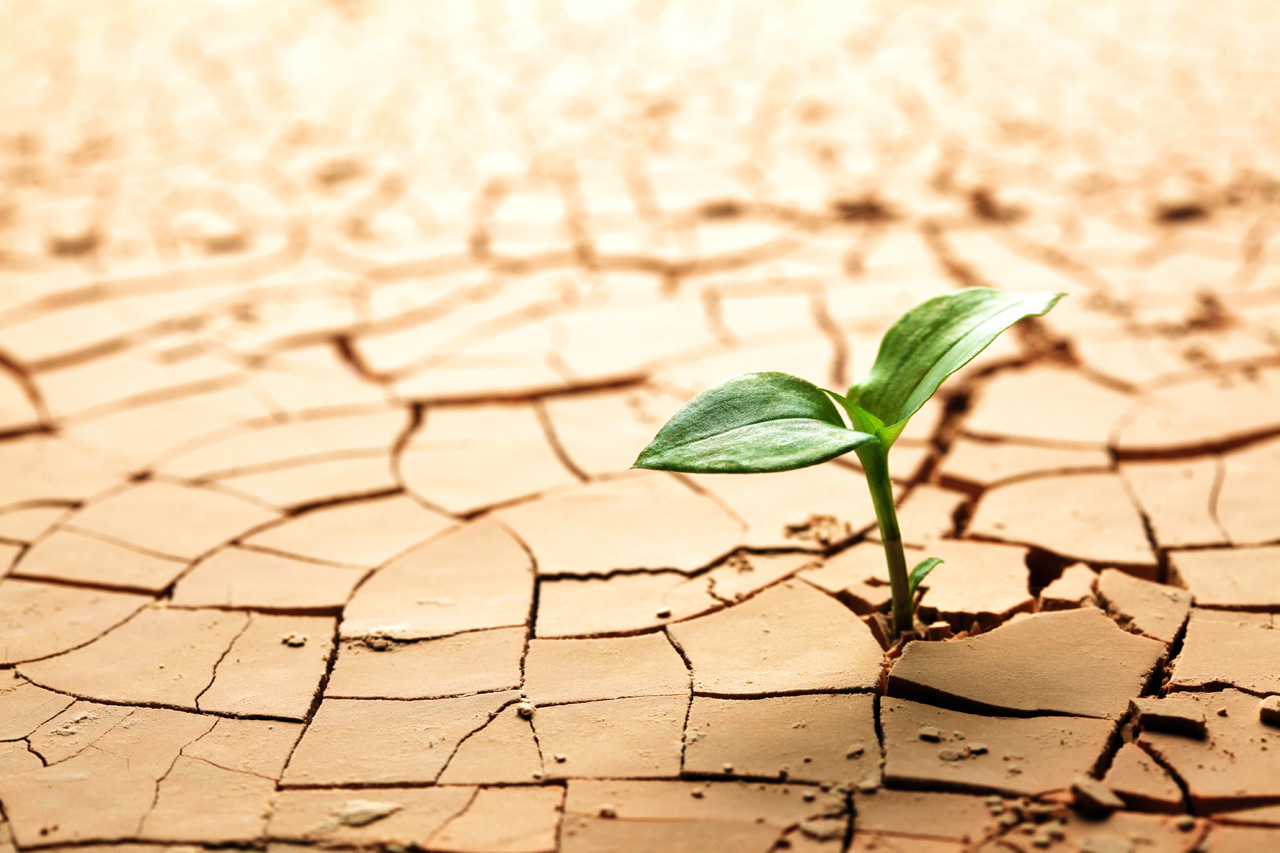
by Ashley Haupt | Dec 30, 2015
I opened my new red leather journal with the gold lettering and wrote “New Year’s Resolutions 2016” on one of the first pages. Dutifully, I scrawled “Go to the gym at least twice a week” and poised my magenta Sharpie pen over the blank page, waiting for the next idea to come to me. Instead my pen hovered. I looked at my resolution and knew it would be hard enough to do just that. Why take on anything else? So under that one I wrote, “Keep up the good work.”
No matter who you are or what season of life awaits you in 2016, here is one resolution we should all make: To grow in grace. “To grow in grace” means we open ourselves to receive more from God while we also continue to pursue Him in confident expectation of blessing.
Growing in grace means we accept more grace from God than we ever have before in our life and also that we give more grace to others than we would previously have thought possible. Growing in grace involves simultaneous receiving and pouring out.
We take in more grace from God and, in turn, have more grace to give others around us. 2 Cor. 9:8 says, “And God is able to make all grace abound to you, so that having all sufficiency in all things at all times, you may abound in every good work.”
Growing in grace means we grow in our capacity to love and forgive ourselves first, based on the redeeming work of Christ on our behalf, and then we extend that same kindness to others. His grace strengthens our hearts with love and power, and we move toward others with that same spirit of love.
“And I am sure of this, that he who began a good work in you will bring it to completion at the day of Jesus Christ.” Phil. 1:6 reminds us that we can count on God’s grace continually at work within us.
We know He won’t give up on us, even though we are spiritual idolaters and adulterers, prone to wander. When we aspire to grow in grace, we are aspiring to reach out for God’s power at work within us.
We don’t see ourselves as lifeless puppets waiting to be danced around, nor do we see ourselves as self-help saviors stomping forward over the wreckage of all our broken resolutions. We are striving to grow within the grace given to each one us, grace that is as different and unique as we are.
Growing in grace means we assume a posture of trust and confidence before the throne of God every morning, bringing our requests before Him even while we keep running the race day by day and fighting the good fight of faith.
I have no idea if the next year will find me at the gym more often, but I am convinced there will be much grace and love for me in 2016. I long to see God at work within me, helping me love myself and others more graciously, more fully.
Gym or no gym, growing in grace is a resolution we can all keep.

by Ashley Haupt | Dec 3, 2015
Several weeks ago, resource officer Ben Fields made national news as he carried out discipline against an unruly and uncooperative female student in Spring Valley High School in South Carolina. The event sparked controversy because of the recent racial tensions brewing across the country, with the police force at the center of the debate.
The story aired in my living room as I ate dinner with my own children. Even at first viewing, I could see that the media was choosing to lambast the officer and excuse the student. Little context was provided as to why the officer’s actions were necessary and the commentator stressed how the other students were “watching in shock and fear” as the events unfolded. By the end of the story, my hackles were up. I had some feisty conversations in the following days with my own high school students. We watched the clips and some of the interviews, and both sides of the issue were well-represented in the classroom.
This individual story represents an alarming trend toward suspicion of authority that echoes the violent outbreaks of Ferguson. The issues are complex and multi-layered, which makes it difficult to wrap our minds around them, but we can all agree that we need peace and security instead of chaos and violence. Here are some points to consider:
1. Authority is instituted by God. Romans 13:1 – “Let every person be subject to the governing authorities. For there is no authority except from God, and those that exist have been instituted by God.” Our sin nature automatically rebels against those who have been put in authority over us; none of us like to be told what to do. But the concept of authority in Scripture is a sturdy tree with deep roots and many branches; it ungirds much of our faith. When we submit to the various levels of authority in our lives, God is honored, because we do this unto Him.
a. On the other hand, authority can be abused. The stain of sin permeates every level of society, and no one is completely immune. People make poor choices, racism is a real issue, and it is very difficult for even a good man to remain completely objective and just in every decision.
b. However, while authority will fail sometimes, it is a good and necessary institution. When wholesale suspicion of authority is being swallowed by a nation, the nation is in trouble. Jesus warned, “A nation divided against itself will fall.” If we turn on the authority that is there for our protection, we have lost some of the strength that formed our great nation. We must find ways to strengthen and refine the systems in place.
2. Discipline is not pretty. One of my students protested that force is never necessary in a high school. While I wish that sentiment were true, I don’t believe it is. Force is necessary when compliance is refused. Whether or not the officer used excessive force is not clear, but the student was given at least three opportunities to obey the authorities placed over her before force was necessary.
My husband and I are not forceful people, but when we were training our young children, sometimes force was necessary to teach them to obey us. Their obedience to our authority is a cornerstone of our family’s peace and security. And sometimes the discipline that was necessary while our children were learning to obey did not look pretty. I would even venture to suggest that if you took a 15-second video clip of me disciplining my children and showed it to the public without context (as happened to Ben Fields), you might draw some very unflattering and untrue conclusions about me. You might not see my character or the context of our family. You might not see me holding my child after the wake of the tantrum and explaining to him or her that “I love you too much to let you act that way.”
3. Race can neither be inflated nor dismissed in upholding authority. Racial profiling happens, sadly; stereotypes are harmful, and officers of the law aren’t always going to act in perfect objectivity. We should and must work to keep justice in our country, which pleases God who is the embodiment of justice.
a. But we also cannot look at each case as solely a race issue without context. If an officer’s record reveals racial bias, this is alarming and must be addressed. But one individual incident of enforcing rules on an offender cannot automatically equal racial bigotry, or the offenders can never be prosecuted except by their own race, which is a return to segregation.
b. A balanced approach is necessary. Officers of the law make mistakes, but race is primarily a heart issue. No one can look into the heart of Ben Fields and say he is racist based on this single incident, but one can certainly look at the actions of the female student and say she is not willing to obey authority. When authority is ignored, consequences follow. If no consequences occur, schools will dissolve into chaos and learning will not take place.
Every time I step into my own classroom, I have to think about the class as a whole. One disruptive student may not seem like much to some, but I know that very little learning takes place when a student is allowed to continue in disruptive behavior. For us to operate as a working classroom, I have to address disciplinary concerns that arise. That’s not comfortable, but it is necessary. The same thing is true on a larger scale with our country. I wish we lived in a world where force is not necessary, but as long as criminal behavior is present, force is necessary to keep law-abiding citizens safe.
As Christians, we must seek to protect and encourage those who are marginalized while upholding the authority that God has instituted for our protection, always trusting Christ in our hearts to work out all things for our good and His glory.

by Ashley Haupt | Nov 25, 2015
The atmosphere in my 11th grade classroom was tense and expectant. I left my usual spot in the front of the room and settled myself in a desk in the middle back instead. It was speech day. The persuasive speeches were supposed to be a light-hearted look at rhetoric, giving the students an opportunity to display their knowledge of ethos, pathos, and logos. But something entirely different happened in that classroom, something as beautiful and unexpected as it was unplanned.
One student after another took the front of the room and displayed amazing courage in sharing personal life experiences. We had discussed at length the fact that the best speeches are the ones that touch genuine emotion. I knew it would be difficult for the students to speak in front of their peers, so my expectations were low. So I was not prepared to see the classroom transform into a platform of emotional courage. One student told a story of a pregnancy scare that left her so full of shame that she attempted suicide and had to be hospitalized. She teared up as she described how music helped her through that dark time. As I looked around the room, other eyes were full of tears at her honest admissions. She told me later that it was the first time she had ever told anyone that story.
Another student, a quiet, polite young man, was persuading us that hunting was a useful, practical use of recreational time. As he began to share about how much hunting meant to his family, he related a story about a death in the family, his uncle. In the public telling of the story, he also became choked up. “I’ve never cried about this before,” he told us, “It’s never hit me like this.” But something about sharing real emotion publicly makes us experience it more keenly than even when the moment occurs. When we pass on our most human stories to a kind audience, something about that touches us deep inside. For this student, he found that he had never actually grieved his uncle’s death.
After sharing with the class her experience of bullying, another student stayed after class to relate to me more tragic history in her family: rape, abuse, and heartache. She told me how she had found more healing recently in going to church than she had in her whole life.
I learned that day about the power of testimony, bearing witness in the presence of others and owning our own unique story. Revelation 12:11 tells us, “And they have conquered him by the blood of the Lamb and by the word of their testimony, for they loved not their lives even unto death.” The word of testimony from the saints of God overcomes the power of the evil one. Jesus asks us to confess Him before men, and promises to confess us before His Father in Heaven. Our public confession is powerful. We open ourselves up to tell the truth in the presence of many witnesses, and here we find moments of such tender humanity that our eyes spill over with the emotions.
Many people struggle with confessing Christ publicly in baptism. My husband, as a pastor, has had people request to be baptized privately. While he is sympathetic to the shyness felt in front of a crowd, he gently refuses to do private baptisms. Our baptism is our public confession of Christ, and it is meant to be in the presence of His holy church who rejoices to see another child enter the kingdom.
To those who struggle with this issue, I would point them to the freedom my students found that day in the classroom. To tell the whole story of who you are before others and let your heart be seen, even in a small way, is a freeing experience. God will surely give you the joy of obedience and the assurance that He is telling you, “Well done, my good and faithful servant.”

by Ashley Haupt | Nov 12, 2015
For the last six years of my life, I have written a lot publicly. While my writing has been a small stone in a small pool making minor ripples, it has meant a lot to me personally. Writing is how I process life and connect with others.
However, in the midst of a year of major change for our family, I find myself without words. Demands on my time provide enough challenge, but when I do sit down before a white screen, my mind is blank. I can think of lesson plans, dinner menus, memos, and household chores, but I cannot think of a thing to write. I have reached a silent year.
When we go through a major life transitions like changing jobs, having a baby, losing a loved one, marital strife, financial changes, etc., our mind and psyche is completely consumed with coping. In these times, we have little left to give to others, and our usual outlets of giving may be temporarily stunted. If Jesus gives us the water of life, as His Word says, we are absorbing more than usual and therefore, our overflow is less. We’re taking in and keeping everything we need.
Writing is an act of the heart, and a very, very vulnerable one. Writing is a way I send out a tiny little voice into the big world to see if anyone out there is listening. But it requires me to have something personal to bring to the table. I must be strong enough to be vulnerable when I write.
Teaching, especially at the high school level, also requires enormous vulnerability. You must stand before the toughest of critics (teenagers) and put a piece of yourself out before people who are quick to judge, slow to understand, and (often, but not always) quick to become angry. You can teach without being vulnerable, but I believe the best teaching involves some level of vulnerability. So after all this vulnerability, at the end of the day, I am speechless. I’ve turned myself inside out, wrung out the last drops, and my creative well is dry.
To keep my year from being completely silent, I offer these three reflections.
1. Getting thicker skin is excruciating. Callouses form from continual friction, and aspiring guitarists know that you have to bleed your way to mastering the fret board. Opening yourself up to people day after day and daring to care opens up your heart to a thousand little rough edges. The process of learning how to care without giving up, becoming cold, or closing down is painful. It happens daily and with purposeful practice.
Transitioning from being home with my babies to being in a classroom with teenagers is a tough change, but it’s also good for me to get a thicker skin. While I hope I never lose a tender heart or compassion for others, I can use some toughening up.
2. Fight or Flight. This morning as I was driving the kids, a medium-sized spider crawled out of the seam where the windshield meets the roof of the car, approximately six inches from my face. The last time this occurred, I swerved over and struck the guardrail. Knowing I wasn’t going to repeat that mistake, I suppressed my instinct to flee, pulled down my sweatshirt sleeve over my hand, and smashed the spider. Every one of us has a fight or flight instinct in times of stress. I have always been prone to flight. Spiders, confrontation, arguments, conflict, and challenges tend to provoke me to run away, avoid, hide, or flee. Only when there is no other option will I choose to fight. But God has put me in some corners where there is no choice but to smash the spider. In the Bible, God tells the Israelites that they only need to stand firm; He will fight for them. I’m learning, slowly, to stand up for myself, stand my ground, and to find strength I didn’t know I possessed.
3. Switching hats. Friday night, I peeled off my school t-shirt and with it, I shed my work week and my teacher role. I took a bath, put on makeup and dressed up for a date with my husband. When I’m at work, it’s hard to close up shop and go home because there is always one more thing to do. When I’m at home, it’s so hard to leave behind my family and go to work; I miss them terribly. When I’m texting with friends, I know how important those relationships are to me, yet it’s hard to find time to get away and spend time together without feeling guilty for not being at home. The guilt I feel in each turn is false guilt, and I have to choose to name it that way and disregard it. Each role I’ve been given is a gift, so it’s important to switch hats and be fully present in all aspects of life God has given. I can never be everywhere at once, and God doesn’t intend for me to be. I honor Him when I am fully present in the present moments of grace.
No matter how silent my year seems, I have a feeling this will be a year of many lessons, even more blessings, and more grace than I can imagine.

by Ashley Haupt | Oct 27, 2015
As a stay-at-home mom, I felt I had time to devote to growing spiritually. Despite the never-ending presence of tiny, noisy people, I could still find pockets of time for Bible study, journaling, and prayer.
But since I went back to work this year (outside the home), I have found myself square in the middle of a spiritual desert. My mind is consumed with students, meal making, grading papers, lesson planning, parenting issues, and keeping in touch with friends and family from morning until I fall into bed exhausted at night.
My increase in busyness gave birth to creeping doubts about my spiritual state. I shared these feelings with my husband one night and we discussed the state of the season. I came away with three reminders:
First, we have to realize that our position is secure in Christ no matter what season of life assaults us. Our salvation was secured by his sacrifice and even when we are spinning on life’s tilt-a-whirl, we still have a sympathetic High Priest who meets us in our weakness. When God looks at us, He sees Christ’s perfect sacrifice. Faith as small as a mustard seed has great power.
Secondly, I need to take stock of my priorities. We are exhorted in Scripture not to neglect the gathering together of the saints. Sunday mornings find me hungry for fellowship and teaching. Sometimes, that’s all I have to give, and that’s enough. But if we begin to neglect this special day, we might be losing sight of what really matters eternally. It’s always a good idea to take stock of our lives and make sure they align to our priorities.
Third, we nourish ourselves differently depending on the season. Some seasons have been spiritual feasts for me. This season is more like spiritual snacking. Some days, I’ll listen to the Bible or a sermon on my way to work, and some days I am consumed with mentally planning the day’s work. Other mornings, I look at the panorama of fall color spread out around me and give silent thanks to the Artist. Nighttime finds me too tired to read anything of substance, but as my head hits the pillow and my body curls into a sleepy ball, my mind goes to a sweet resting place and I fall asleep thinking Jesus, thank You for sleep.
Gratitude sings a worshipful song even when I’m rushing to and fro. Thank you, Lord, for this job, these children, this messy house, my tired husband, our cozy bed, food in the fridge, coffee in my cup. One day I’ll sit in a quiet house with a lit candle, my Bible and journal, and it will be so sweet. Today is not that day, but His presence is no less powerful. He is with us, always, even in the rush and the tide and the day filled with duty. Anything less than certainty in that truth is unbelief.
Lord, we do believe! Help our unbelief when busyness crowds out the sense of your presence.




